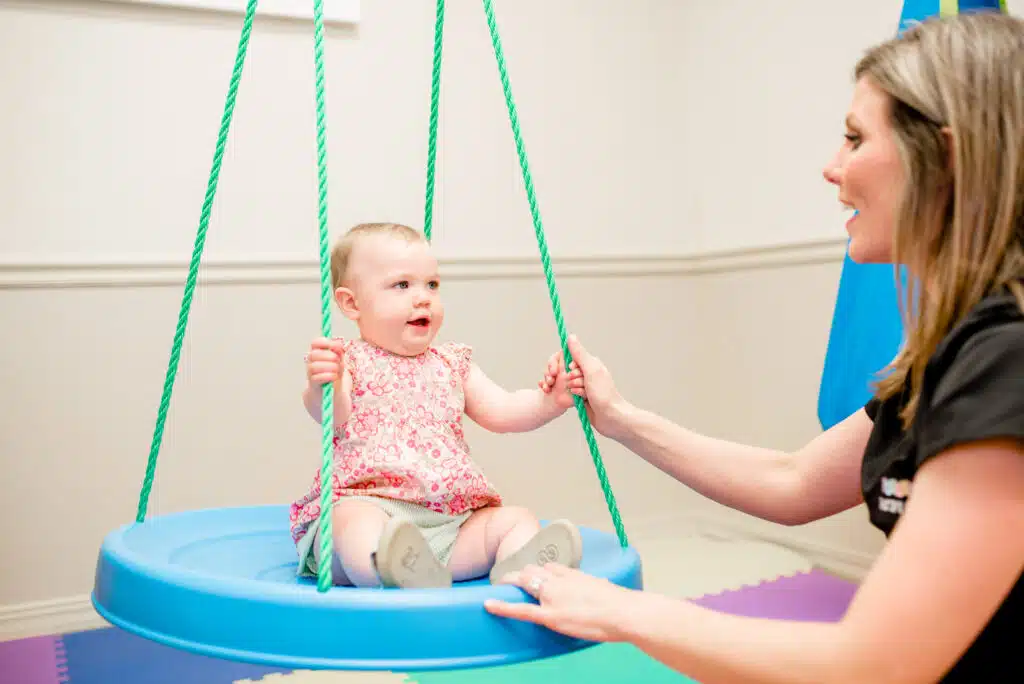Early intervention is a crucial component in ensuring optimal development for children. The early years of a child’s life are a critical period when their brains are rapidly forming connections and laying the foundation for future learning and growth. In this blog post, we will explore the significance of early intervention in various aspects of a child’s development, including speech, cognitive, gross motor, fine motor, and social development. Understanding the benefits of early intervention can empower parents and caregivers to take proactive steps in supporting their child’s overall well-being.
1. Speech Development: Early intervention in speech development addresses language delays, speech sound disorders, and communication difficulties. By identifying and intervening in the early stages, speech therapists can implement targeted strategies to enhance speech clarity, expand vocabulary, improve language comprehension, and foster effective communication skills. Early intervention ensures that children receive the support they need to express themselves, build social connections, and succeed academically.
2. Cognitive Development: Early intervention in cognitive development focuses on promoting cognitive skills such as attention, memory, problem-solving, and reasoning abilities. Cognitive stimulation during the early years is vital for building a solid foundation for future learning. Early intervention programs offer age-appropriate activities and strategies to stimulate cognitive development, nurture curiosity, and foster critical thinking skills.
This intervention enables children to develop cognitive flexibility, creativity, and the ability to navigate challenges as they grow.
3. Gross Motor Development: Early intervention in gross motor development targets the development of large muscle groups, balance, coordination, and physical strength. Through occupational therapy and physical therapy interventions, children receive guidance and support to develop age-appropriate motor skills. Early intervention helps children gain confidence in their physical abilities, promotes independent movement, and facilitates participation in social activities and sports, setting the stage for a healthy and active lifestyle.
4. Fine Motor Development: Fine motor development involves the refinement of small muscle movements, hand-eye coordination, and dexterity. Early intervention in fine motor development focuses on activities that enhance hand skills, such as grasping, manipulating objects, drawing, and writing. Occupational therapists provide strategies and interventions to improve fine motor coordination, promote hand strength and control, and develop skills necessary for self-care, such as feeding and dressing. Early intervention in fine motor development lays the groundwork for success in academic tasks and promotes independence in daily activities.
5. Social Development: Early intervention in social development recognizes the importance of early social experiences in shaping a child’s ability to form relationships, understand emotions, and engage in social interactions. Social skills interventions aim to enhance a child’s ability to communicate, take turns, share, and empathize with others. Through social play, structured activities, and guidance from therapists, children learn appropriate social behaviors, develop emotional regulation skills, and build the foundation for positive social relationships throughout their lives.
Early intervention plays a pivotal role in optimizing a child’s development across multiple domains, including speech, cognitive, gross motor, fine motor, and social development. By identifying and addressing developmental challenges at an early stage, children have the opportunity to receive targeted support, guidance, and interventions tailored to their specific needs. Early intervention empowers children to overcome obstacles, reach their full potential, and thrive in all aspects of their lives. As caregivers and advocates for children, recognizing the significance of early intervention equips us with the knowledge and resources to provide the best possible support for their comprehensive development.
At our clinic, we can help with all of these situations and more. If your baby or child needs pediatric therapy, we can help get them on the road to success. Call us at (318) 746-1199 today for a free phone screening!

